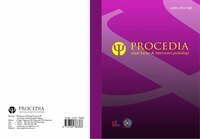Behavioral Couples Therapy untuk memperbaiki pola komunikasi pada pasangan suami istri
DOI:
https://doi.org/10.22219/procedia.v10i2.19000Keywords:
Family interactions, communication patterns, marital satisfaction, behavioral couples therapyAbstract
The family is the smallest unit of society that lives under one roof and is interdependent physically, psychologically and socially. In the family there are problems that can develop from the relationship between husband and wife. One of the problems that often arise in husband-wife relationships is communication patterns that hurt each other.Negative communication patterns that are repeated in everyday life form a person's assessment of others to become increasingly negative. If the negative communication pattern is maintained, the more severe the problems will be faced so that it can affect marital satisfaction in the household. Subjects are husband and wife who have problems with negative communication patterns. Data was collected using interviews, observations and the ENRICH marital satisfaction scale. Problems with negative communication patterns can be corrected with behavioral couples therapy (BCT).Interventions were carried out to improve communication patterns that were originally aversive and hurt each other to become more positive, thereby increasing marital satisfaction. BCT consists of 6 sessions. The results of the intervention show that the problem of negative communication patterns can be overcome effectively using behavioral couple therapy. Communication skills improve negative communication in partners. While the behavior exchange technique is effective in overcoming problems in interaction.
Downloads
References
Amalia, V., & Ratnasari, Y. (2017). Kepuasan Pernikahan Berhubungan dengan Kecenderungan Berselingkuh. Jurnal Ilmu Perilaku, 1(1), 45–57. https://doi.org/10.25077/jip.1.1.45-57.2017
Baucom, B., Atkins, D. ., Eldridge, K., Mcfarland, P., & Chritensen, A. (2012). The language of demand/withdrawl: Verbal and vocal expression in dyadic interactions. Journal Family Psychology, 25(4), https://doi.org/570–580.10.1037/a0024064
Benson, L. A., Sevier, M., & Christensen, A. (2013). The impact of behavioral couple therapy on attachment in distressed couples. Journal of Marital and Family Therapy, 39(4), 407–420. https://doi.org/10.1111/jmft.12020
Christensen, A., Atkins, D. C., Yi, J., Baucom, D. H., & George, W. H. (2006). Couple and individual adjustment for 2 years following a randomized clinical trial comparing traditional versus integrative behavioral couple therapy. Journal of Consulting and Clinical Psychology, 74(6), 1180–1191. https://doi.org/doi:10.1037/0022-006x.74.6.1180
Corey, G. (2017). theory and practic e of counseling and psychotherapy (10th ed.). Cangage Learning.
Dalgleish, T. L., Johnson, S. M., Burgess Moser, M., Lafontaine, M. F., Wiebe, S. A., & Tasca, G. A. (2015). Predicting Change in Marital Satisfaction Throughout Emotionally Focused Couple Therapy. Journal of Marital and Family Therapy, 41(3), 276–291. https://doi.org/10.1111/jmft.12077
Eldridge, K. A., Sevier, M., Jones, M., Atkins, D. C., & Christensen, A. (2007). Demand-withdrawl communication in severly distressed, moderately distressed and nondistressed couple: Rigidity and polarity during relationship and personal problem discussions. Journal Of Family Psychology, 21(2), 218–226.https://doi.org/10.1037/0893-3200.21.2.218
Fallis, A. (2013). The “Broken Home” or Broken Society A Sociological Study of Family Structure and Juvenile Delinquency. Journal of Chemical Information and Modeling, 53(9), 1689–1699.
Fischer, D. J., & Fink, B. C. (2014). Clinical processes in behavioral couples therapy. Psychotherapy, 51(1), 11–14. https://doi.org/10.1037/a0033823
Fowers, B. J., & Olson, D. H. (1993). ENRICH Marital Satisfaction Scale: A Brief Research and Clinical Tool. Journal of Family Psychology, 7(2), 176–185. https://doi.org/10.1037/0893-3200.7.2.176
Galvin, K. M., Braithwaite, D. O., & Bylund, C. L. (2015). Family communication: Cohesion and change. Routledge.
Javanmard, G. H., & Garegozlo, R. M. (2013). The Study of Relationship Between Marital Satisfaction and Personality Characteristics In Iranian Families. Procedia - Social and Behavioral Sciences, 84, 396–399. https://doi.org/10.1016/j.sbspro.2013.06.573
Kumar, P., & Tiwari, S. C. (2008). Family and psychopathology : An Overview Series-1 : Children and Adults. Delhi Psychiatry Journal, 11(2), 140–149.
Maryanti, & Rosmiani. (2007). Keluarga Bercerai dan Intensitas Interaksi Anak Terhadap Orang Tuanya (Studi Deksriptif di Kecamatan Medan Sunggal). Jurnal Harmoni Sosial, I(2), 60–68.http://repository.usu.ac.id/handle/123456789/18595
Nevid, J., Rathus, S., & Greene, B. (2013). Abnormal psychology. In Pearson Education, Inc (Vol. 53). https://doi.org/10.1017/CBO9781107415324.004
O’Farrell, T. J., Schumm, J. A., Murphy, M. M., & Muchowski, P. M. (2017). A randomized clinical trial of behavioral couples therapy versus individually-based treatment for drug-abusing women. Journal of Consulting and Clinical Psychology, 85(4), 309–322.
Oriza, I. I. D., Nadira, H., Ardi, M., & Khairunnisa, N. (2018). Efektivitas Aktivitas Menghitung Berkat (Counting Blessing) Terhadap Kepuasan Pernikahan. Jurnal Muara Ilmu Sosial, Humaniora, Dan Seni, 2(1), 650–659.10.24912/jmishumsen.v2i2.2087
Russel, R., & Wells, P. (1994). Predictors of Happiness in Married Couples. Personality and Individual Differences, 17(3), 313–321. https://doi.org/Robin J.H. Russell; Pamela A. Wells (1994). Predictors of happiness in married couples. , 17(3), 313–321. https://doi:10.1016/0191-8869(94)90279-8
Skinner, B. F. (1965). Science and human behavior. The Free Press.
Wiegand-Grefe, S., Sell, M., Filter, B., & Plass-Christl, A. (2019). Family functioning and psychological health of children with mentally ill parents. International Journal of Environmental Research and Public Health, 16(7), 1278. https://doi:10.3390/ijerph16071278
Downloads
Published
How to Cite
Issue
Section
License
Copyright (c) 2022 Noventia Sekar

This work is licensed under a Creative Commons Attribution-NonCommercial 4.0 International License.






